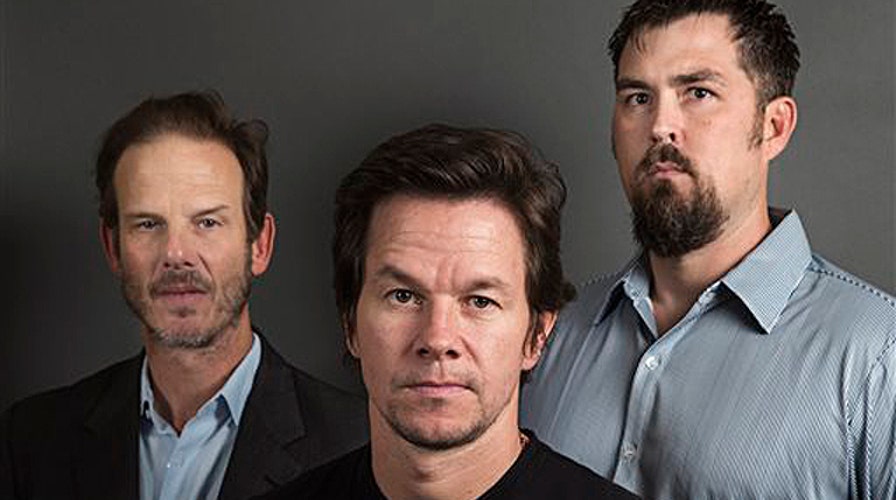The movie 'Lone Survivor' opens
Former Navy SEAL Marcus Luttrell enters the ‘No Spin Zone’ to discuss the new film
This is a RUSH transcript from "The O'Reilly Factor," January 9, 2014. This copy may not be in its final form and may be updated.
Watch "The O'Reilly Factor" weeknights at 8 p.m. and 11 p.m. ET!
O'REILLY: In "Back of the Book" segment tonight, the movie, "Lone Survivor" opens all over the U.S.A. tomorrow.
(BEGIN VIDEO CLIP)
ERIC BANA, ACTOR: The way I see it, we've got three options. One, we let him go, hike up, he'd probably be found in less than an hour. Two, we tie him up, hike out, roll the dice. He'd probably be eaten by wolves or freeze to death.
TAYLOR KITSCH, ACTOR: Three?
BANA: We terminate the compromise.
MARK WAHLBERG, ACTOR: We cannot do that.
(END VIDEO CLIP)
O'REILLY: And if you haven't read the book, that is a key scene in Marcus Luttrell's, who is now in Houston and joins us, the author of "Lone Survivor," because they didn't the SEALs, they didn't kill the shepherds, and the shepherds did tell the Taliban.
And, therefore, the four Americans had to engage a huge force. And that is what the book and the movie is all about.
Before we get to that, Marcus, you almost died there. Four of your friends did -- and I'm sure you saw those killed as well -- do you have any feelings about Afghanistan now that's tottering.
MARCUS LUTTRELL, FORMER NAVY SEAL AND LONE SURVIVOR AUTHOR: Sure. I mean, the villagers who saved my life, they're still over there. So, I worry about them constantly, they're always in threat.
As far as I have family members that are in the military, -- and when we first went over there, the game plan was solid. We knew why we were over there, we knew why we were fighting.
And, as the years progressed, -- I mean, he knows better than anybody, even tracking just as long. And it's frustrating, I would imagine. I'm not in and, frankly, those questions are a little above my pay grade but I -- not knowing what the in-state is and just being over there -- because the enemy, they don't care what we're doing over here.
They're constantly fighting us and trying to kill us. So, you're over there just dealing with that threat, without the --
O'REILLY: Yes, I just think that it's so emotional for you because, as you just pointed out, Afghans did save your life. The Taliban comes in and starts to persecute the people again.
All of the American blood and treasure, we tried our best. You know, same things happen in Iraq, that these al-Qaeda are back. The movie is going to be a big hit, as your book was.
(BEGIN VIDEO CLIP)
How involved were you. Does it actively portray, accurately portray what you went through or did they Hollywood it up a little bit.
LUTTRELL: No. First of all, I was consulting on the film. I was out there probably for 75 to 80 percent of it. As far the representation of the real-life story, we took it from real life and put it into a book, and then from the book, the literal translation into, obviously, a movie.
There's going to be some stuff that gets dropped in it. It is Hollywood but --
(END VIDEO CLIP)
-- the director and the cast and the crew, they did everything they possibly could to make sure that the movie stayed true to form.
There's nobody swinging from wires. I didn't fall in love with the village elder's daughter, or anything like that. It's a war movie, sir, and pretty gruesome.
O'REILLY: OK. So, you were happy with the way that Hollywood treated the screenplay and the director cut the film, that it doesn't diminish the heroism that you guys showed in that Eastern Afghan theater.
Why should people put -- as you said, it's an intense movie, I mean, why should people put themselves through it.
(LAUGHTER)
LUTTRELL: That's a good question. It's firsthand look at, basically, the inside of a SEAL team --
(BEGIN VIDEO CLIP)
-- and the reconnaissance and the stuff that we go through on a daily basis, the bump and grind, starting from buds training all the way into when we deploy.
But it goes deeper than that. It talks about how we're not just mindless soldiers. We have families and, you know, parents and kids.
(END VIDEO CLIP)
And that not all Afghani people are bad. I mean, people -- first of all, a lot -- most people think that we're at war with Afghanistan. And that just kind of blows me away.
But the fact that every Muslim is bad and -- just look at the villagers who saved my life.
O'REILLY: That's right.
LUTTRELL: They're Muslims. And there's a lot of good people over there and --
O'REILLY: So, it's an education -- it's an education on the screen which should be exciting. But I think there's one thing that you didn't mention, probably because you're too modest, is that it's an example of American heroism.
Now, you guys are all heroes and I think that people should sit there and see that. I really do. So, Marcus, thanks very much. Good luck with the film.
Content and Programming Copyright 2012 Fox News Network, LLC. ALL RIGHTS RESERVED. Copyright 2012 CQ-Roll Call, Inc. All materials herein are protected by United States copyright law and may not be reproduced, distributed, transmitted, displayed, published or broadcast without the prior written permission of CQ-Roll Call. You may not alter or remove any trademark, copyright or other notice from copies of the content.

